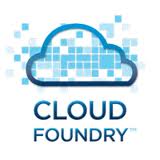VMware Cloud Foundry is Open!
Saturday, April 30, 2011 » Cloud, Cloud Services, CloudFoundry, Paas, VMware
<!--break--> Google App Engine, Amazon Elastic Beanstalk, Force.com's VMforce and Microsoft Azure can all make arguments for being "open" platforms. They all provide the capabilities to run applications written in a variety of languages (hint: anytime you hear Microsoft promoting the fact that you can run Java, PHP and Ruby on their platform, you know they're pushing the concept of "open"). The experience of deploying, for example, Java applications on any of the platforms is pretty simple. The "added" overhead for applications that run on, but otherwise don't use any of the platform services ranges from "no overhead at all" to "creating a simple XML file for deployment." It's only when one starts to use vendor-specific platform services and tools that they start to find themselves locked-in to the platform. Unfortunately, many of these vendor-specific services and tools are quite compelling. Cloud Foundry offers to circumvent vendor lock-in in several ways. Cloud Foundry is designed to be made available on a wide variety of platforms, including those of other public cloud service providers. For example, RightScale, in partnership with VMware is already providing access to Cloud Foundry running on Amazon EC2. Cloud Foundry will be made available for "private clouds" (which this author believes is over-used as a term of marketspeak that attempts to brand all in-house virtualized datacenter services as somehow being "Cloud Computing" - they're not, but "Cloud Computing" seems so much more chic these days that everyone from hardware vendors to software vendors and even poor confused journalists have adopted the term. Real Private Clouds are built on the same or similar technologies as public clouds but are most often owned by a single company for their own use. Private Clouds, when used alone, do not offer all of the same benefits of public clouds. Hybrid models may offer more benefits.). There's even a forthcoming "MicroCloud" desktop developers environment. According to Steve Harrod, Chief Technology Officer for VMware, "Cloud Foundry provides a PaaS implementation that offers developers what they need� choice: By offering an open architecture in all three dimensions, Cloud Foundry overcomes major limitations found in today�s PaaS solutions. Nascent industry PaaS offerings are held back by limited or non-standard framework support, lack of variety of application services and especially the inability to deploy applications across both public and private clouds. " Cloud Foundry is also based upon open source technologies. VMware has open sourced Cloud Foundry and has provided the source code to Cloud Foundry on Github. Presumably this will enable them to create and leverage an open source community of people to contribute to the improvement and development of Cloud Foundry. VMware has been busily acquiring companies and technology components to better the Cloud Foundry offering (in fact, Cloud Foundry was previously developed by SpringSource). Cloud Foundry offers access to a rich variety of frameworks and databases, all of which are also available on almost any platform environment. Cloud Foundry does, however, offer a number of services that are unique to Cloud Foundry, and by using these services within an application, that application would be limited to running within an instance of Cloud Foundry. Since Cloud Foundry will be available in several public clouds, and for use outside the cloud, a strong argument can still be made that Cloud Foundry provides a way to avoid vendor lock-in. As virtual machine technologies continue to commoditize, it's good to see VMware presenting a strategy for addressing the next-generation of computing paradigm. Their choice of rolling out a PaaS is, in my opinion, the "right" choice as such services provide a very desirable level of abstraction away from the underlying systems, implementation, resource scalability, system administration and maintenance allowing the focus to be on developing great applications that serve their intended purposes and audiences. "Open" sounds, to me, to be the right strategy. It limits (if not eliminates) vendor lock-in, provides choices in deployment models and clouds, and offers potential users insights into, and the ability to correct or contribute to the body of code that makes up the solution. I'll be exploring Cloud Foundry over the next few weeks and will certainly report more upon my findings. Meanwhile, with the entry of VMware into the Cloud Computing PaaS arena, the world of Cloud Computing has gained another strong player and more choices.  Yesterday I received my credentials to access the beta of VMware's Cloud Foundry. Cloud Foundry marks the entry of VMware into the public cloud computing PaaS (Platform as a Service) marketplace, directly competing against the Google App Engine, Amazon Elastic Beanstalk, Force.com's VMforce, and Microsoft Azure. VMware's new entry, far from being a "me too" platform, raises the bar in a number of significant areas, the most apparent of which is that it's a completely open platform. VMware is really pushing the concept of "open" and has even released "The Cloud Developer's Bill of Rights." VMware has, in essence, attempted to shatter one of the most feared constraints of Cloud Computing -- vendor lock-in. But what about other platforms, aren't they "open" too?
Yesterday I received my credentials to access the beta of VMware's Cloud Foundry. Cloud Foundry marks the entry of VMware into the public cloud computing PaaS (Platform as a Service) marketplace, directly competing against the Google App Engine, Amazon Elastic Beanstalk, Force.com's VMforce, and Microsoft Azure. VMware's new entry, far from being a "me too" platform, raises the bar in a number of significant areas, the most apparent of which is that it's a completely open platform. VMware is really pushing the concept of "open" and has even released "The Cloud Developer's Bill of Rights." VMware has, in essence, attempted to shatter one of the most feared constraints of Cloud Computing -- vendor lock-in. But what about other platforms, aren't they "open" too?

 Welcome to my place!
Welcome to my place!